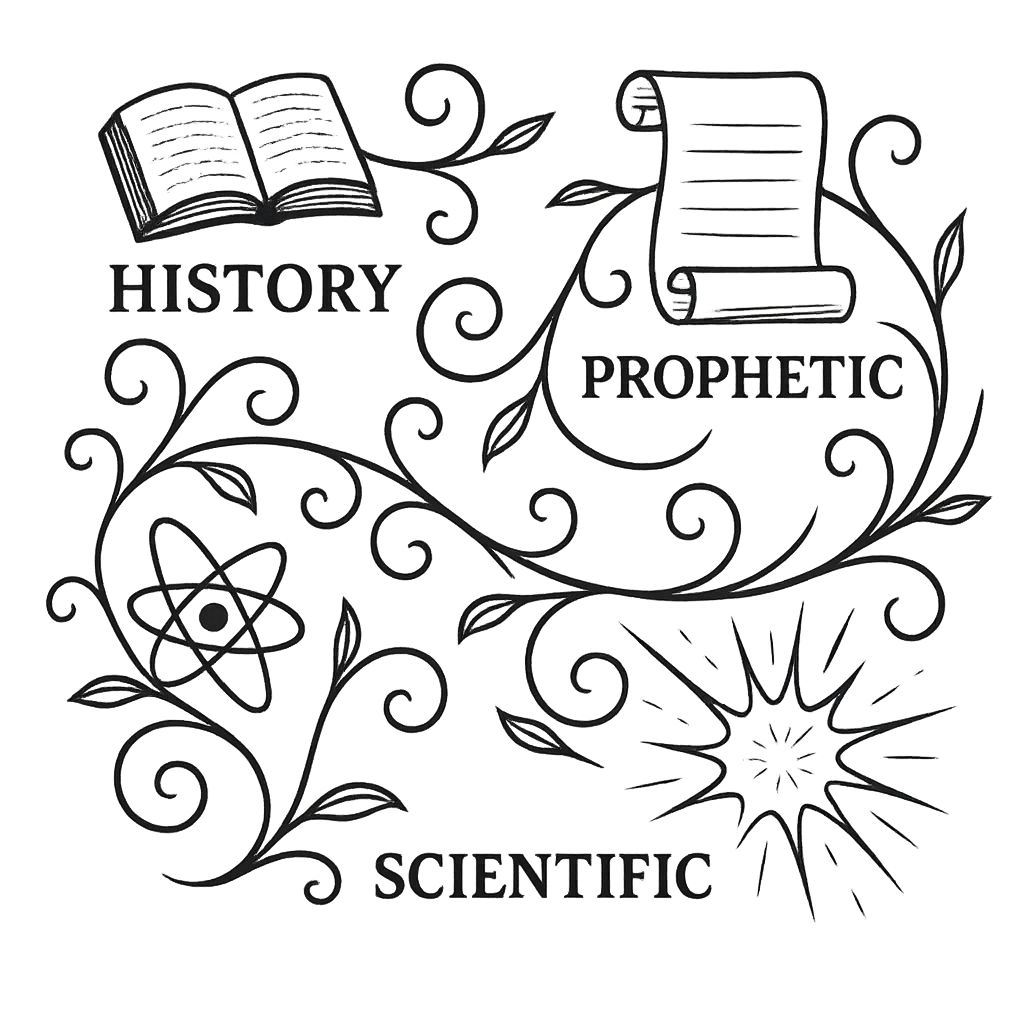Category: Science
-
Understanding “Day” in Genesis 1: Does It Really Mean 24 Hours?
— by
in ScienceGenesis 1 is not just one of the most iconic chapters in the Bible — it’s also one of the most frequently misread chapters. At the center of this debate is a deceptively simple Hebrew word: “yom”, most commonly translated as “day.” For many modern readers, yom automatically implies a literal 24-hour day — morning,…
-
The Virgin Birth of the Universe: Why Naturalism Doesn’t Add Up
— by
in ScienceMost people associate the phrase “virgin birth” with Christianity: the miraculous conception of Jesus, born of a young woman without a human father. To skeptics, that sounds like a leap of faith. But what if I told you atheism has its own version of a virgin birth? According to most atheistic or naturalistic worldviews, the…
-
Einstein’s General Relativity: Time Had a Beginning
— by
in ScienceWhen Albert Einstein developed his General Theory of Relativity in 1915, he thought he was unlocking a better way to describe how gravity works. What he didn’t expect was that his equations would also open the door to a revolutionary idea: Time, space, and matter all began together. This was not just a tweak in…
-
Galaxy Seeding: The Blueprint for a Habitable Cosmos
— by
in ScienceWhile the universe’s expansion and radiation tell us that it began, the formation of galaxies tells us how it became structured and life-permitting. The process of galaxy seeding, how matter clumped to form stars, galaxies, and ultimately planetary systems, is an extraordinary story of cosmic architecture. 🌱 What Is Galaxy Seeding? “Galaxy seeding” refers to…
-
Radiation Afterglow: The Echo of a Begining
— by
in ScienceOne of the most profound confirmations of the universe’s origin is the Cosmic Microwave Background (CMB). CMB is the faint thermal radiation that fills the universe and comes from every direction in space. This “afterglow” is often called the radiation echo of the Big Bang. What Is the CMB? ~380,000 years after the Big Bang,…
-
Expanding Universe
— by
in ScienceThe expanding universe refers to the observation that space itself is stretching, causing galaxies to move away from each other over time. This was first confirmed by Edwin Hubble in the 1920s, when he observed that the light from distant galaxies is redshifted, meaning they’re receding from us. Key points: 🔍 What Does Expansion Tell…
-
Second Law of Thermodynamics: Why Entropy Implies a Beginning
— by
in ScienceThe Second Law of Thermodynamics states that the total entropy, a measure of disorder or randomness, of an isolated system will increase over time. Entropy can decrease locally (in one part of the system) but only if the surrounding system’s entropy increases by at least as much. In simpler terms, things naturally tend to move…
-
Cosmological Argument
— by
in ScienceOne of the most common arguements for Intelligent Design is the Cosmological argument, which has been popularized by scholars William Lane Craig and Frank Turek, amongst others. The Cosmological argument is rooted in both science and philosphy, and follows the following philsophical reasoning: But how do we know the universe had a beginning? And how…
